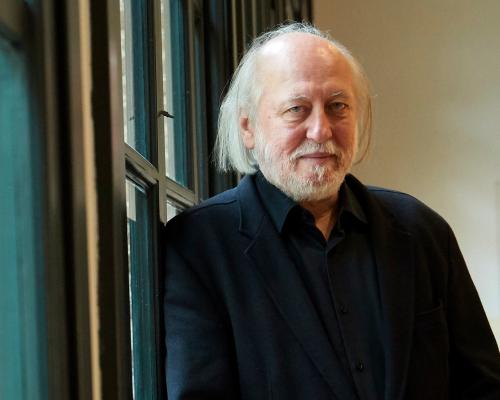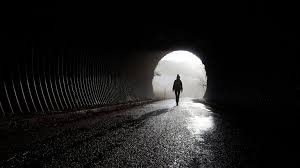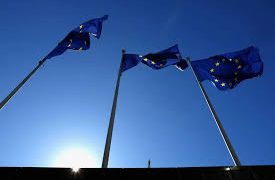Hungarian author László Krasznahorkai has won the 2025 Nobel Prize in Literature for his “compelling and visionary oeuvre that, in the midst of apocalyptic terror, reaffirms the power of art,” according to NobelPrize.org. At 71, he becomes the second Hungarian writer to receive the prestigious award, following Imre Kertész in 2002. The Swedish Academy praised Krasznahorkai’s work for its ability to confront existential darkness while simultaneously celebrating the transformative potential of art.
A Singular Literary Voice
Born in Gyula, Hungary, in 1954, Krasznahorkai initially studied law but soon turned to literature as his primary vocation. He developed a unique writing style, known for long, intricate sentences, dense poetic prose, and a philosophical, often bleak outlook. These stylistic choices reflect his deep engagement with existential themes and human despair, drawing readers into immersive, contemplative experiences.
His debut novel, Satantango (1985), remains a cornerstone of contemporary literature. The story portrays life on a decaying collective farm in post-communist Hungary, exposing the psychological and social pressures of a collapsing society. Hungarian filmmaker Béla Tarr adapted the novel into a seven-hour cinematic masterpiece, showcasing the collaborative synergy between Krasznahorkai’s literary vision and Tarr’s stark visual storytelling. Their partnership has influenced both literature and cinema worldwide.
Another significant work, The Melancholy of Resistance (1989), examines societal collapse and the human struggle to find meaning amid chaos. Tarr adapted this novel as well, further cementing Krasznahorkai’s reputation as a writer whose work transcends the page, inspiring visual as well as literary narratives.
Themes and Style
Krasznahorkai’s writing often explores the absurdity, darkness, and fragility of human existence. He challenges conventional narrative structures, frequently employing extended sentences without standard punctuation, which creates a sense of relentless flow and urgency. Critics often compare his work to Franz Kafka and Thomas Bernhard, noting its philosophical depth, meticulous structure, and Eastern European influences.
Despite the somber subject matter, Krasznahorkai infuses his work with moments of hope and affirmation, celebrating art’s ability to illuminate human resilience. The Swedish Academy emphasized that his writing “reaffirms the power of art” even in the midst of apocalyptic terror, underscoring his dual capacity to confront despair while offering a vision of transcendence through literature.
Recognition and Impact
Before receiving the Nobel Prize, Krasznahorkai had already achieved significant acclaim. In 2015, he won the Man Booker International Prize for The Last Wolf & Herman, recognizing the global relevance and literary innovation of his work. In 2019, he received the National Book Award for Translated Literature for Seiobo There Below, further establishing his international reputation.
His novels have been translated into numerous languages, allowing readers worldwide to experience his singular voice. Despite the inherent challenges of translating his complex sentences and stylistic intricacies, translators have successfully conveyed his dense, poetic prose, opening doors for a devoted international readership. Krasznahorkai’s collaboration with Béla Tarr has extended his influence into cinema, demonstrating the versatility and cultural impact of his storytelling.
Personal Life and Political Engagement
Krasznahorkai has also drawn attention for his political commentary and outspoken views. He has frequently criticized Hungarian Prime Minister Viktor Orbán, particularly regarding policies on immigration, civil liberties, and democratic governance. In a 2023 interview, Krasznahorkai described Hungary’s political climate as “a dictatorship in disguise,” a statement that sparked debate across his home country.
Despite these tensions, Prime Minister Orbán publicly congratulated Krasznahorkai on his Nobel Prize win. The gesture highlighted the complex relationship between the author and the political establishment, illustrating how his literary achievements transcend domestic political divides.
Literary Legacy and Influence
Krasznahorkai’s contributions extend beyond the confines of his novels. His innovative narrative style has influenced a generation of writers seeking to push the boundaries of traditional prose. Scholars highlight his ability to merge philosophical inquiry with narrative tension, creating works that are intellectually challenging yet emotionally compelling.
His collaboration with Béla Tarr has also contributed to a distinct cinematic aesthetic, characterized by long takes, meticulous attention to visual detail, and a meditative pacing that mirrors Krasznahorkai’s prose. This fusion of literature and film demonstrates how narrative techniques can transcend mediums, creating a cross-disciplinary impact that few contemporary authors achieve.
Looking Ahead: Nobel Ceremony and Global Recognition
Krasznahorkai will receive the Nobel Prize in Literature at a ceremony in Stockholm on December 10, 2025. The award carries a monetary prize of nearly $1.2 million, along with a gold medal and a diploma. As the second Hungarian to receive this honor, Krasznahorkai’s recognition underscores the enduring significance of Hungarian literature on the global stage.
Literary scholars emphasize that his work not only explores the intricacies of the human condition but also affirms the universal power of art to endure, inspire, and challenge. Through his novels, readers gain insight into humanity’s darkest and most profound moments, guided by a literary voice that remains both uncompromising and visionary.
Global and Cultural Impact
Krasznahorkai’s international recognition highlights Hungary’s rich literary tradition and its contributions to world literature. His works have helped expand the global understanding of Eastern European narratives, offering readers perspectives that blend historical context, philosophical inquiry, and deep psychological insight.
Furthermore, his novels’ adaptations into film have contributed to cultural exchanges between literature and cinema, demonstrating how storytelling can bridge artistic forms. This versatility has not only increased the accessibility of his work but also inspired other authors and filmmakers to experiment with narrative form, pacing, and style.
Conclusion
László Krasznahorkai’s 2025 Nobel Prize in Literature honors a lifetime of dedication to exploring the human condition through complex, visionary prose. His works challenge readers to confront existential questions while celebrating the transformative power of art.
As a literary figure, he embodies both intellectual rigor and emotional depth, influencing writers, filmmakers, and readers around the world. His achievements reinforce the global significance of Hungarian literature and the universal resonance of art that confronts darkness yet affirms hope.
With this recognition, Krasznahorkai joins the ranks of Nobel laureates whose works continue to shape cultural, literary, and philosophical discourse worldwide. For readers and scholars alike, his novels remain a testament to the enduring power of narrative to illuminate the human spirit.








